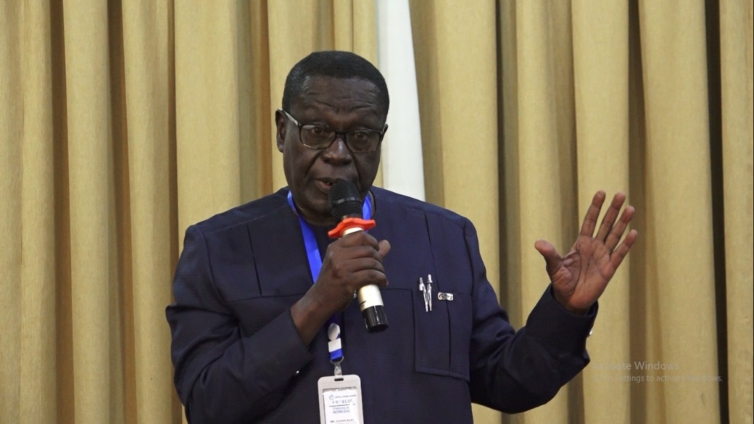Ghana’s quest to ensure a sustainable environment which hinges on recycling and reuse of plastic materials has been handed a major boost by the World Bank.
This follows a $13 million grant from the Bretton Wood institution through its programme ‘PROBLUE’.
This was disclosed by an advisor to the Minister of Environment, Science, Technology and Innovation, Oliver Boachie at a workshop organised by the World Bank.
PROBLUE is a multi-donor trust fund, administered by the World Bank to support the sustainable development of marine and coastal resources as well as eradicating plastic waste.
The workshop was to assist government to develop a framework which will promote an economic system based on the reuse and regeneration of materials or products, as a means of continous production in a sustainable or environmentally friendly way.
Speaking to Joy Business on the sidelines of the programme, Mr Boachie said the fund will help Ghana develop a system where players in the plastic production and usage space will be giving more responsibility in the use of recycled products.
“The World Bank is helping us develop a framework establishment together with an EPR (Extended Producer Responsibility) scheme which addresses Ghana’s needs.”
He further stressed the need to develop tailored policies which suit Ghana’s culture and socio-economic landscape.
Economist at the World Bank, Grzegorz Peszko, urged government to consider tax incentives which will make the usage of recycled plastics affordable.
According to him, introducing tax incentives for companies that use recycled plastics will encourage the usage of recycled plastics.
“Ghanaian producers don't see the incentives to use the recycle content because Europe has policies in place; virgin plastic taxes on packaging. More and more European countries can introduce these taxes. It means that plastic products made from recycled content are cheaper and the difference is the tax.”
Latest Stories
-
Empowering Girls in ICT: FAWE Ghana advocates for gender equality in the Tech sector
17 mins -
Rangnick ‘contacted by Bayern Munich’ about manager job
19 mins -
Winneba Youth Choir celebrates 35th Anniversary with Aseda Concert sponsored by Fidelity Bank
23 mins -
Bonwire residents reject Agya Koo’s endorsement of Ejisu NPP MP aspirant
30 mins -
SSNIT to run out of reserves due to deficits – ILO
35 mins -
Lagos officials eye Jospong Group’s eco-friendly waste management module
37 mins -
Photos: NDC outdoors Prof Naana Opoku-Agyemang as running mate
38 mins -
Tevez released from hospital after chest pains
39 mins -
EU expresses confidence in Ghana’s rejection of Anti-LGBTQI legislation
43 mins -
UK to improve access to life-saving malaria drugs for the most-affected countries
52 mins -
Newey to leave Red Bull over Horner allegations
57 mins -
Fifa announces deal with Saudi oil company Aramco
57 mins -
Free SHS: It takes time to review a policy – Tsiboe-Darko
1 hour -
Spanish prosecutors ask judge to scrap case against PM Pedro Sánchez’s wife
1 hour -
Kwabena Fori releases ‘Let Me Go’ ahead of ‘Tuesday’ EP
1 hour

